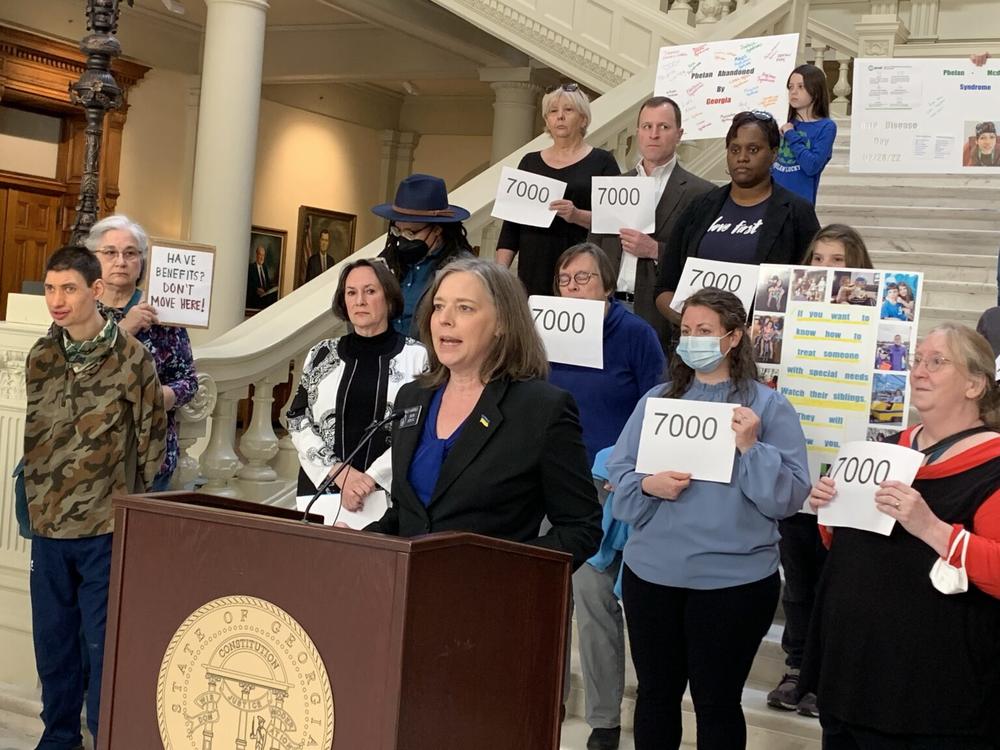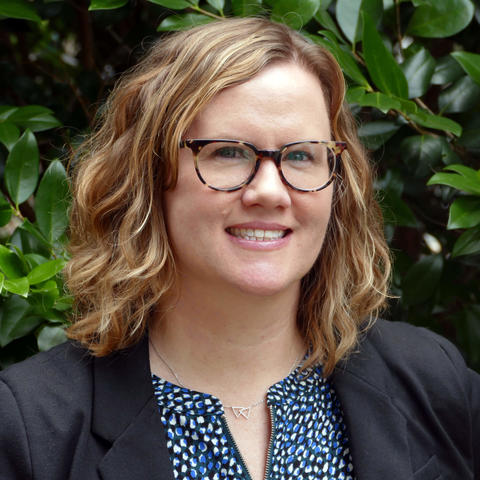
Caption
State Sen. Sally Harrell stood with advocates, family members and others at a state Capitol press conference in late February demanding lawmakers step up funding for the 7,000 people who have qualified for services.
Credit: Jill Nolin/Georgia Recorder

